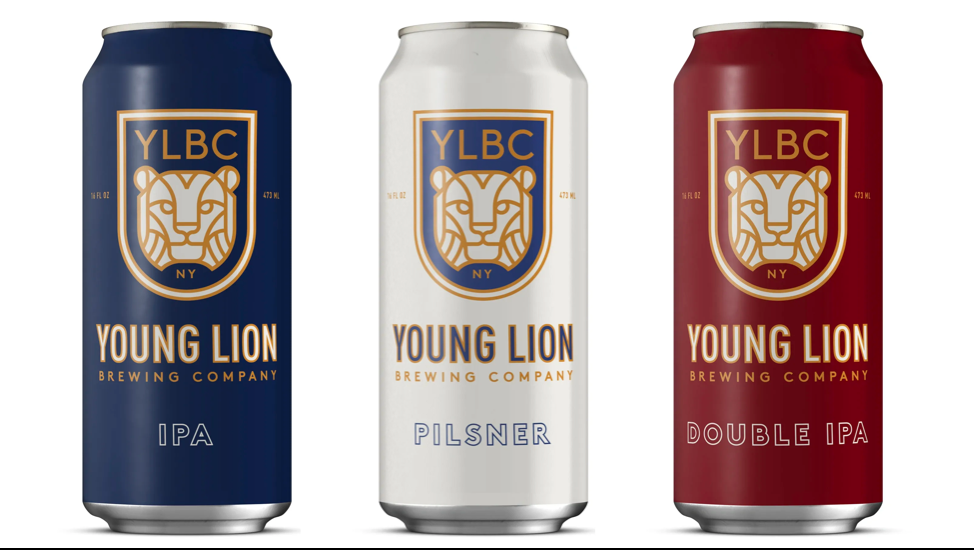When you think of beer, what comes to mind? For many, the thought conjures commercials with men drinking in a bar, watching football or another major league sport. The brewery and craft beer worlds are also particularly male-dominated spaces. But female craft brewers do exist in a “man’s world”. CEO and co-owner of Young Lion Brewing Company (YLBC), Jennifer Newman, flipped this narrative as a female entrepreneur in the craft brewing industry.
Despite Newman’s success, she was often looked past compared to her male counterparts in settings such as beer festivals. Newman began to wonder whether she needed to change the way she marketed her company. It bought up questions like: Should YLBC leverage the fact that the company is 75% woman-owned, and woman managed? Would it be innovative and profitable to highlight her role as a rare female leader among all the beer-making lads? Should YLBC go all in on niche-marking itself as a craft beer for women?
Sheri Lambert, associate professor of marketing at the Fox School, found these questions important as she had also experienced working in a male-dominated industry during her time in the corporate world, and as a researcher. Through her case study, Young Lion Brewery: Leveraging Female Leadership? Lambert discusses the answers to marketing strategies for female entrepreneurs.

“I teach a lot of business cases in my marketing strategy courses, but students started to approach me saying that the protagonist in most cases did not represent them. I heard this predominately from students who identify as people of color and female students,” says Lambert. “After having a conversation with Jennifer Newman, I became interested in this topic because when I would ask someone what an owner of a brewery looks like, most times, they would not have chosen my protagonist.”
Newman explained to Lambert that as a woman, her approach to the business was different due to having a vision and mission that is all about community and quality. She markets what makes the brand unique, giving the company a competitive advantage. The YLBC taproom became an instant marketing feature, with games like cornhole and events such as summer concerts. Newman found that the majority of her fanbase on social media was women and that many people who visited her taproom became loyal customers.
“Being a woman in a male-dominated industry is a strength that businesses should showcase. There is no shame in taking advantage of the fact that your company is a women-led company, instead, you should proudly broadcast that when marketing the brand,” says Lambert. “Other women will naturally gravitate towards a female-run and emphasized business, because believe it or not, women do drink and enjoy beer.”
When Newman chose the name of her brand, she went against deciding something “feminine.” Instead chose to base it off Rochester New York’s long-lost nickname: “Young Lion of the West” and went with a darker color palate for the cans. This more masculine look to the brand proves that female-owned brands do not need to have a more feminine look or name to set them apart in the industry.
“Since beer is a product that is perceived to be predominately targeted and sold to men, women will have to work harder to market their product. Newman approached this through advertisements, social media and public relations initiatives,” says Lambert. “When it comes to women marketing beer, it is critical that they understand the needs of their target audience before developing a marketing strategy. They should not just sell the product, but instead feature the unique benefits to purchasing from a female-owned business.”
Lambert suggested that female-owned businesses highlight phrases in their marketing strategies such as “women-owned” or “female-owned”, obtain a Women Business Enterprise (WBE) certification, and create a social media presence that not only leverages their own business, but also other female-owned companies.
“Advertisements for beer companies have often been created for the male gaze. For instance, many major beer brands will advertise during major male sporting events like NFL Football games or NASCAR races and use attractive bikini-clad women in their graphics,” says Lambert. “Female entrepreneurs should use the suggested marketing tactics to their advantage because it sets them apart as a female-owned brand, which consumers are eager to support.”
In the past, we have often taught women which jobs are for them and which are for men, but that is changing. Capitalizing on female representation in male-dominated industries is critical to disrupt stereotypes. We must work to change the perception of the marketplace, and this starts with women entering these industries.
